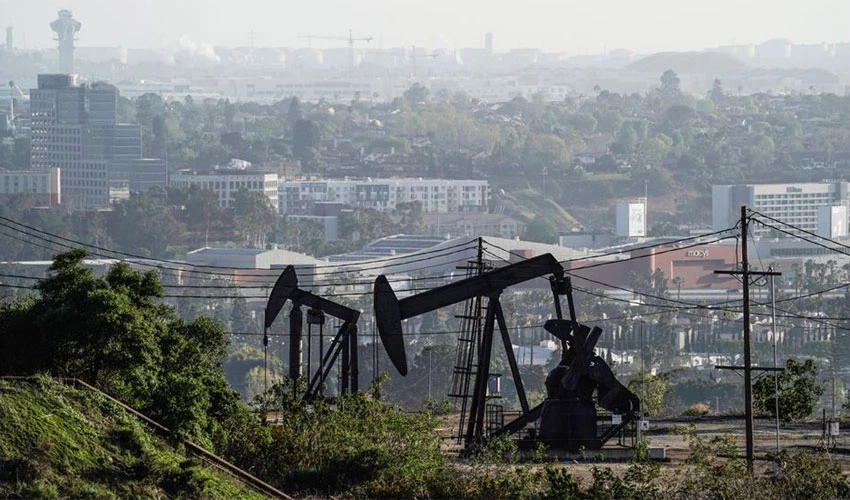Oil up slightly as supply worries offset weak China, Japan data

CALIFORNIA (Reuters) - Oil prices edged up on Wednesday after Moscow said peace talks with Ukraine had hit a dead end, fuelling supply worries, while weak economic data from China and Japan kept a lid on gains.
Brent crude rose 22 cents, or 0.2%, to $104.86 a barrel at 06:26 GMT, while US West Texas Intermediate (WTI) crude futures rose 8 cents, or 0.1%, to $100.68 a barrel, after dropping earlier in the session. The benchmarks had surged more than 6% on Tuesday.
"The downside for oil prices is limited," said OANDA senior market analyst Jeffrey Halley, citing peace talks hitting a dead end and comments from US President Joe Biden accusing Russia of genocide. These "are reinforcing that the Ukraine Russia situation will not be de-escalating anytime soon", he added.
Putin on Tuesday blamed Ukraine for derailing peace talks, and said Moscow would not let up on what it calls a "special operation" to disarm its western neighbour.
Crude futures are also drawing support from falling Russian oil and gas condensate production to below 10 million barrels per day (bpd) on Monday, its lowest since July 2020.
Western sanctions against Russia after it invaded Ukraine and logistical constraints have hampered trade, people familiar with the data said on Tuesday
OPEC has warned it would be impossible to replace potential supply losses from Russia and signalled it would not pump more crude. read more
Reports this week of partial easing of some of China's tight COVID-19 lockdown measures also underpinned oil prices.
There was optimism that with China lockdowns slowly easing in some areas, fuel demand would rebound, said Tina Teng, an analyst at CMC Markets.
However, weak economic data from China and Japan capped oil price gains.
China's crude oil imports slipped 14% from a year earlier, extending a two-month slide, as strict COVID curbs hit demand in the world's top crude importer.
Japan reported its biggest monthly fall in core machinery orders in nearly two years in February, dragged down by a steep drop in demand from IT and other service firms.







